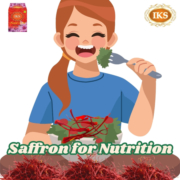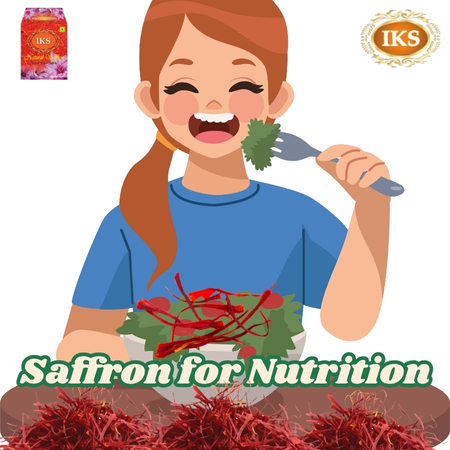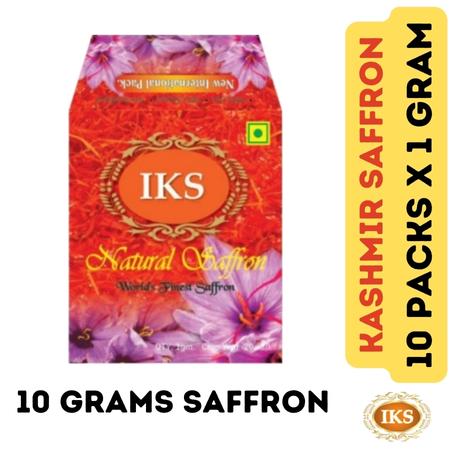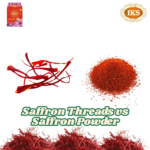Saffron for Nutrition: A Superspice for Your Diet
Saffron for Nutrition: A Superspice for Your Diet
Saffron for Nutrition – Derived from the delicate stigma of the Crocus sativus flower, saffron has been utilized for centuries in culinary traditions and medicinal practices across the globe. Rich in antioxidants, vitamins, and minerals, saffron offers a plethora of health advantages that can enhance overall well-being.
From its mood-boosting properties to its potential in supporting eye health and digestion, saffron stands out as a valuable addition to a nutritious diet.
This article explores the multifaceted nutritional benefits of saffron, highlighting its significance in promoting health and wellness.
🌟 Discover the Power of Saffron Today! Enhance your meals and health! 🌿
Nutritional Profile of Saffron
Saffron is not merely a culinary delight; it is a treasure trove of nutrients that contribute to an array of health benefits. Its unique and potent components make it a valuable addition to the diet, offering both flavor and nutrition. Below, we explore the key nutritional components of saffron in detail, highlighting its vitamins, minerals, antioxidants, and caloric content.
1. Vitamins and Minerals
Saffron’s nutritional profile includes several essential vitamins and minerals that play crucial roles in maintaining overall health:
- Vitamin C:
- Saffron contains small amounts of Vitamin C, an essential nutrient known for its powerful antioxidant properties.
- Benefits: Vitamin C supports the immune system, aids in the absorption of iron from plant-based foods, and promotes skin health by encouraging collagen production. This vitamin also helps protect cells from oxidative stress, reducing the risk of chronic diseases.
- Vitamin A:
- Saffron is a source of beta-carotene, which the body converts into Vitamin A.
- Benefits: Vitamin A is vital for maintaining healthy vision, particularly in low-light conditions. It also supports immune function, skin health, and cellular communication, making it essential for overall well-being.
- Manganese:
- This trace mineral is present in saffron and is crucial for various bodily functions.
- Benefits: Manganese plays a role in bone formation, metabolism, and the regulation of blood sugar levels. It also has antioxidant properties that help combat oxidative stress and inflammation.
- Iron:
- Saffron contains iron, which is essential for the production of hemoglobin in red blood cells.
- Benefits: Adequate iron intake is vital for preventing anemia, enhancing oxygen transport throughout the body, and supporting energy levels. Iron also plays a role in immune function and overall cellular health.
2. Antioxidants
One of the most remarkable aspects of saffron is its richness in antioxidants, compounds that help protect the body from oxidative stress and reduce inflammation. Key antioxidants in saffron include:
- Crocin:
- Crocin is a carotenoid responsible for saffron’s vibrant yellow color.
- Benefits: Research suggests that crocin may enhance mood, improve memory, and provide anti-inflammatory benefits. It has been studied for its potential role in reducing symptoms of depression and anxiety.
- Picrocrocin:
- This compound contributes to saffron’s distinctive flavor profile and offers potential health benefits.
- Benefits: Picrocrocin is believed to have antioxidant and anti-inflammatory properties, which can support overall health and well-being.
- Safranal:
- Safranal is responsible for the aroma of zaffran and is another potent antioxidant.
- Benefits: Beyond its aromatic qualities, safranal may have neuroprotective effects, suggesting potential benefits for cognitive health and memory enhancement.
3. Caloric Content
Saffron is low in calories, containing approximately 20 calories per gram. This makes it an excellent addition to a variety of dishes without significantly impacting overall caloric intake.
- Benefits: Because of its low caloric density, saffron can be used to enhance the flavor, color, and nutritional value of meals without contributing to weight gain. This characteristic makes it particularly appealing for individuals looking to maintain or lose weight while still enjoying flavorful foods.
🌈 Transform Your Diet! Incorporate saffron and unlock its health benefits today! 🌿
Health Benefits of Saffron
Saffron is not only a culinary gem but also a powerful natural remedy with a plethora of health benefits. Its unique composition of bioactive compounds contributes to its effectiveness in promoting various aspects of health.
Below, we delve into some of the most notable health benefits of saffron, providing detailed insights into how it can be beneficial for your well-being.
1. Mood Enhancement
Saffron is often celebrated for its potential to improve mood and alleviate symptoms of depression. Several studies have highlighted the mood-enhancing properties of saffron, particularly due to its active components:
- Crocin and Safranal: These two key compounds in saffron are believed to influence neurotransmitter activity in the brain. They may help increase the levels of serotonin, a neurotransmitter that plays a crucial role in regulating mood and emotional well-being.
- Clinical Studies: Research has shown that saffron supplementation can be as effective as some conventional antidepressants in alleviating mild to moderate depression. Regular consumption may lead to significant improvements in mood and emotional health.
- Mechanism of Action: By enhancing serotonin levels, saffron may help reduce feelings of sadness, anxiety, and stress, promoting a more positive outlook on life.
2. Antioxidant Properties
Saffron is exceptionally rich in antioxidants, which are essential for protecting the body from oxidative stress:
- Cell Protection: The antioxidants in saffron, such as crocin, picrocrocin, and safranal, help neutralize free radicals—unstable molecules that can damage cells and lead to chronic diseases.
- Lowering Disease Risk: Regular consumption of saffron may lower the risk of chronic conditions, including heart disease and cancer. By combating oxidative damage, saffron supports overall cellular health and longevity.
- Anti-Aging Effects: The antioxidant properties of saffron also contribute to skin health, potentially reducing the appearance of aging and promoting a youthful complexion.
3. Anti-inflammatory Effects
Saffron has been shown to possess significant anti-inflammatory properties, making it beneficial for various inflammatory conditions:
- Pain Relief: For individuals suffering from conditions like arthritis, saffron may help reduce inflammation and alleviate pain. Its anti-inflammatory effects can lead to improved joint function and mobility.
- Chronic Inflammatory Diseases: Regular intake of saffron may help manage symptoms associated with chronic inflammatory diseases, providing relief and enhancing the quality of life for those affected.
- Mechanism: The bioactive compounds in saffron inhibit inflammatory pathways, thus reducing the production of inflammatory markers in the body.
4. Improved Digestion
Saffron can also play a role in promoting healthy digestion:
- Digestive Enzyme Stimulation: Saffron has been found to stimulate the production of digestive enzymes, enhancing the body’s ability to break down food and absorb nutrients effectively.
- Alleviating Gastrointestinal Discomfort: Saffron may help alleviate symptoms of gastrointestinal discomfort, including bloating and gas. Its soothing properties can promote a healthier digestive tract.
- Potential Benefits for Appetite: Some studies suggest that saffron may help reduce appetite, which can be beneficial for those looking to manage their weight.
5. Eye Health
The carotenoids present in saffron, particularly crocin, are believed to support eye health in several ways:
- Vision Improvement: Research indicates that saffron may help improve vision by enhancing blood flow to the eyes and protecting against retinal damage.
- Protection Against Age-Related Macular Degeneration (AMD): Saffron has been studied for its potential to prevent or slow the progression of AMD, a leading cause of vision loss in older adults. The antioxidants in saffron help protect retinal cells from oxidative damage.
- Overall Eye Health: Regular consumption of saffron may contribute to better eye health, promoting clearer vision and protecting against common age-related eye issues.
6. Sexual Health
Saffron has a long-standing reputation as a natural aphrodisiac, and some studies support its role in enhancing sexual health:
- Enhancing Sexual Function: Research indicates that saffron may improve sexual function and increase libido, especially in individuals experiencing sexual dysfunction or a decrease in sexual desire.
- Mechanisms of Action: Saffron’s mood-enhancing properties may contribute to improved sexual health by reducing anxiety and stress, creating a more conducive environment for intimacy.
- Potential Benefits for Men and Women: Studies have shown that saffron may enhance erectile function in men and increase sexual arousal in women, making it a versatile option for promoting sexual wellness.
7. Benefits for Pregnant Women
Saffron is also noted for its potential benefits during pregnancy, although it should be consumed with caution:
- Nutritional Support: Saffron contains essential nutrients that can support the health of both the mother and the developing fetus. Its antioxidant properties may help protect against oxidative stress during pregnancy.
- Mood Regulation: Pregnancy can bring about significant emotional changes, and saffron’s mood-enhancing effects may help alleviate anxiety and stress, contributing to a more positive pregnancy experience.
- Caution: While saffron can offer benefits, it is essential for pregnant women to consult with a healthcare provider before incorporating saffron into their diet, as excessive consumption may lead to complications.
🍽️ Join the Saffron Revolution! Start cooking with this nutritional powerhouse! 👩🍳
How to Use Saffron in Your Diet
Incorporating saffron into your diet is simple and rewarding, allowing you to enjoy its unique flavor while reaping its numerous health benefits. Here are several ideas to help you seamlessly add saffron to your culinary repertoire:
1. Saffron Tea
One of the easiest and most soothing ways to enjoy saffron is by making saffron tea. This delightful beverage not only warms the soul but also offers a range of health benefits.
- Preparation:
- Steep a few strands of saffron (about 5-10 strands) in hot water (around 200°F or 93°C) for 10-15 minutes.
- The longer you steep, the more flavor and color will be extracted from the saffron.
- Enhancements:
- You can enjoy the tea on its own or sweeten it with a drizzle of honey for added flavor.
- For an extra boost, consider adding a slice of lemon or a pinch of ginger, both of which complement saffron beautifully.
- Health Benefits:
- Saffron tea is rich in antioxidants and can aid in digestion, enhance mood, and promote relaxation.
2. Saffron Milk
Saffron milk, also known as “kesar doodh,” is a beloved drink in many cultures, particularly in India. It combines the richness of milk with the aromatic qualities of saffron.
- Preparation:
- Warm a cup of milk (dairy or plant-based) and add 10-15 strands of saffron.
- Allow the saffron to steep in the warm milk for 5-10 minutes to release its flavor and color.
- Enhancements:
- You can add a pinch of cardamom or cinnamon for added flavor, and sweeten it with honey or sugar if desired.
- For a nutritious twist, consider adding chopped nuts like almonds or pistachios.
- Health Benefits:
- Saffron milk is known to promote better sleep and improve mood, making it an excellent bedtime beverage.
3. Culinary Dishes
Saffron is a versatile ingredient that can elevate a variety of dishes, adding depth of flavor and vibrant color.
- Rice Dishes:
- Saffron pairs beautifully with rice, making it a key ingredient in dishes like risotto, paella, and biryani.
- To prepare, dissolve a pinch of saffron in warm stock or water and stir it into the rice as it cooks.
- Soups and Stews:
- Add saffron to soups and stews for a unique flavor profile.
- It works particularly well in Mediterranean and Middle Eastern dishes, enhancing the overall taste and aroma.
- Vegetables and Seafood:
- Saffron can be infused into sauces for vegetables or seafood, giving your dishes a gourmet touch.
- Health Benefits:
- By incorporating saffron into savory dishes, you enhance not only the flavor but also the nutritional value, thanks to its vitamins and antioxidants.
4. Saffron in Desserts
Saffron’s rich flavor and stunning color make it a wonderful addition to various desserts.
- Rice Pudding:
- Infuse saffron into traditional rice pudding for an aromatic twist. Soak saffron strands in warm milk before adding them to the rice mixture during cooking.
- Custards and Ice Cream:
- Saffron can elevate custards and ice creams, adding a luxurious flavor.
- For ice cream, dissolve saffron in warm milk before mixing it into your ice cream base.
- Baked Goods:
- Consider adding saffron to cakes, muffins, or pastries for an exotic flavor. It pairs well with vanilla and citrus flavors.
- Health Benefits:
- Saffron-infused desserts not only satisfy your sweet tooth but also provide antioxidant benefits, enriching your overall dessert experience.
5. Saffron Supplements
For those who may find it challenging to incorporate saffron into their daily meals, saffron supplements are available in various forms, such as capsules or extracts.
- Consultation:
- Before starting any supplement regimen, it is essential to consult with a healthcare professional, especially if you are pregnant, nursing, or taking medication.
- Dosage:
- Follow the recommended dosage on the supplement packaging or as advised by your healthcare provider to ensure safety and efficacy.
- Potential Benefits:
- Saffron supplements may offer concentrated benefits, including mood enhancement and antioxidant support, making them a convenient option for those seeking the health benefits of saffron without the culinary preparations.
10 GRAMS 100% PURE ORIGINAL AUTHENTIC PREMIUM TOP BEST HIGH QUALITY A+++ GRADE IKS KASHMIRI SAFFRON (KESAR / KUMKUMA PUVVU / KUNGUMAPOO / KUMKUMPUVVU / ZAFFRAN) FOR NUTRITION
Conclusion
Saffron is more than just a spice; it is a powerhouse of nutrition and health benefits. From its rich history to its impressive nutritional profile, saffron stands out as a valuable addition to any diet. By incorporating saffron into your meals, you can enjoy its unique flavor while reaping its numerous health advantages.
Whether you choose to brew saffron tea, enhance your favorite dishes, or try saffron-infused desserts, this golden spice is sure to elevate your culinary experience and contribute to your overall well-being. Remember, a little goes a long way, so use saffron sparingly to enjoy its benefits fully.
Incorporating this luxurious spice into your lifestyle can lead to a healthier, happier you. So go ahead, embrace the golden spice of saffron and enjoy its many nutritional rewards!









Leave a Reply
Want to join the discussion?Feel free to contribute!